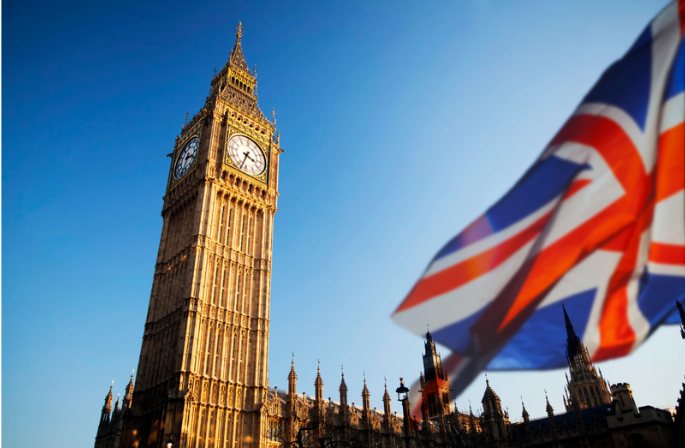The United Kingdom is planning major changes to its immigration rules. It will add new limits on work and study visas for certain countries. The government says this is part of its plan to tighten border control and make sure the immigration system works properly.
The policy change comes as more people stay in the UK after their visas expire. Many enter the country legally as students or skilled workers but later apply for asylum. Government reports show that people from some countries do this more often than others. This has led to a more focused and data-based response.
The new rules are meant to stop people from misusing legal ways to enter the UK. The government plans to make the visa process stricter and look more closely at applications from certain countries. This is to lower overall migration, protect the immigration system, and prevent abuse, while still being fair to those who follow the rules.
Targeted Countries
The UK plans to apply these new visa rules to people from countries it sees as high-risk, based on migration data. Reports say the list may include Pakistan, Nigeria, Sri Lanka, and other countries with similar immigration patterns.
The UK Home Office flagged these countries because of repeated patterns. Many people from these places stay in the UK after their visas expire, often without legal permission. This breaks immigration rules and puts extra pressure on public services and border control efforts.
Officials have also seen a big rise in asylum claims from people coming from these regions. While asking for asylum is a legal right, the Home Office says many of these claims are made after people arrive on study or work visas. This raises concerns that some are using legal visas as a way to later apply for asylum.
Visa Categories Affected
The new rules will mainly target two main visa types: student visas and skilled worker visas. These are the most common legal ways for people from other countries to enter the UK.
Student Visas
Student visas have helped many people come to the UK for education. But government data shows more students are now staying after their visas expire or applying for asylum soon after they arrive. Because of the rise in these cases, the government is rethinking how it gives and tracks student visas, especially for people from high-risk countries.
Skilled Worker Visas
Skilled worker visas will also be checked more closely under the new rules. These visas help fill important jobs in areas like healthcare and technology. But some people have misused them. In some cases, people entered the UK saying they had a job, but then applied for asylum or didn’t take the job. This hurts trust
Possible Inclusion of Other Visa Routes
While student and skilled worker visas are the main focus, other visa types might also be affected. These include family, graduate, and temporary work visas, especially if past data shows people have misused them. The Home Office is still watching for patterns and may add rules to any visa category it sees as risky.
Why These Categories Are Vulnerable
These types of visas are easy to misuse for a few reasons. First, they provide a legal and structured way to enter the UK, which makes them attractive to people looking to take advantage of the system. Second, they often have fewer checks before arrival than visas for permanent settlement, making misuse more likely. Lastly, they usually allow people to stay longer, which makes it harder to enforce the rules if someone doesn’t leave or renew their visa.
Reasons Behind the Policy Change
The UK government’s plan to tighten visa rules is part of a larger effort to better control immigration. This change is driven by several important reasons, mainly to protect the visa system and respond to growing concerns across the country.
Reducing Net Migration
One of the main goals of the government is to reduce the total number of people moving to the UK. Recent data shows that more migrants are coming each year. Although legal migration helps the economy and public services, the high numbers have led to calls for change, especially when the migrants’ skills don’t match the country’s job needs or strain public resources.
Public Pressure and Political Response
The policy change also comes from growing public pressure. Immigration is a sensitive topic in the UK, and more people, including lawmakers, are calling for stronger control. The increase in migrant numbers, along with worries about people overstaying or claiming asylum without clear rules, has led to loud demands for the government
Preventing Visa System Abuse
Another big reason for the policy change is the misuse of legal visa options. Some people enter the UK with valid student or work visas but stay longer than allowed or later apply for asylum without proper documents. This behavior damages trust in the immigration system and makes it harder for honest applicants to get approved.
Data-Driven Decision Making
The UK government is shifting to immigration policies based more on data. The Home Office looks at things like migration trends, visa overstays, and asylum claim patterns to judge which nationalities or visa types may pose a risk. This helps the government focus on problem areas without making broad or unfair rules for everyone.
Potential Impact on Applicants
The new visa rules could have a big impact on people applying from countries seen as high-risk. These changes might lower their chances of getting approved and make the process harder. They could also affect education, jobs, and how the UK interacts with other countries.
Increased Scrutiny for Flagged Nations
People applying from countries like Pakistan, Nigeria, and Sri Lanka will likely go through stricter checks. They may need to provide more documents, go through tougher verification, and wait longer for a decision. The goal is to spot high-risk cases early and prevent misuse. So, applicants must be well-prepared and follow all the rules carefully.
Higher Visa Rejection Risks
Visa refusals may become more common, especially for people who cannot show strong ties to their home country, clear study or work plans, or enough money to support themselves. Immigration officers will look at each application more carefully. If anything is unclear or missing, the visa may be denied. That’s why it’s important to be honest, clear, and complete when applying.
Strain on International Students and Skilled Workers
These new rules may make things harder for international students and skilled workers. Many already spend a lot of time and money planning to move to the UK. Students might find it more difficult to provide all the documents needed or worry about changes to study options. Skilled workers could also face more challenges in getting jobs, especially in industries that depend on foreign workers.
Diplomatic and Economic Repercussions
These new visa rules might also cause problems between the UK and the countries affected. Some governments could see the changes as unfair or biased, which might harm their relationship with the UK. On top of that, important sectors like universities, hospitals, and tech companies, which rely on skilled people from other countries, could face challenges if fewer students and workers come to the UK.
What Affected Individuals Should Do
As the UK plans to introduce new visa rules for certain countries, people who want to apply should take early and careful steps. Being well-prepared and having the right information will be key to getting approved.
Stay Informed Through Official UK Immigration Channels
Applicants should check official sources often, like the UK Home Office website and government news updates. These sources give the most accurate and up-to-date information on visa rules and how to apply. Trusting these verified platforms helps you avoid false information and stay on track with the latest requirements.
Prepare Thorough, Well-Documented Applications
A strong visa application starts with complete and clear documents. This includes a valid ID, proof of enough money, school or work records, and a clear plan to return home after the visa ends. Make sure every document matches your visa type and tells a consistent story. A well-prepared application can help avoid delays and improve your chances of getting approved, especially with stricter checks in place.
Seek Guidance from Certified Immigration Advisors
Immigration rules can be hard to follow, especially when policies change. It’s best to get help from licensed immigration consultants or legal experts. They can guide you, spot any problems in your application, and make sure you meet the latest visa rules. Stay away from fake agents or unofficial advice to avoid mistakes that could hurt your chances.
Monitor Country-Specific Announcements from the UK Home Office
The UK might bring in special rules for certain countries. These could change who can apply, what documents are needed, or how often visas get approved. If you’re from one of these countries, keep a close eye on updates about your country. Knowing the rules early will help you plan better and avoid last-minute problems.
Frequently Asked Questions
Is this policy already in effect?
No, the policy has not been officially implemented. As of now, it remains under review. However, reports suggest the UK Home Office may move forward with nationality-based assessments and tighter application screening soon.
Will this affect current visa holders from these countries?
At this stage, the proposed restrictions are expected to apply to new visa applicants. Existing visa holders are unlikely to be directly impacted, but should stay informed about any further changes to extension or residency rules.
Could these changes impact UK universities or employers?
Yes. Universities may experience a decline in international student enrolment from affected countries. Employers relying on overseas talent, especially in sectors like healthcare or technology, may face additional recruitment challenges.
Are these restrictions permanent?
The current proposals are part of a broader review of the UK’s immigration system. If implemented, they may be adjusted over time based on policy outcomes, immigration trends, or diplomatic developments.
Conclusion
The UK is planning major changes to its immigration system. These changes would focus on countries where more people overstay their visas or later apply for asylum. The goal is to have stricter control over visas like student and skilled worker visas. Although the new rules are not in place yet, they show that the UK is moving toward using data and risk levels to decide who gets a visa.






